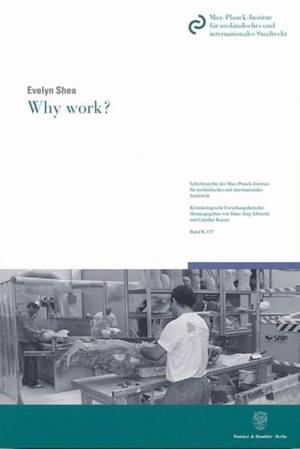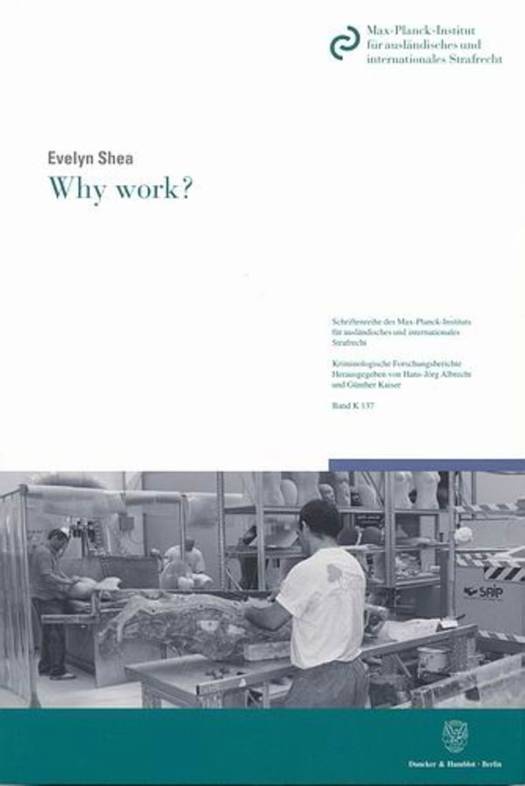
- Afhalen na 1 uur in een winkel met voorraad
- Gratis thuislevering in België vanaf € 30
- Ruim aanbod met 7 miljoen producten
- Afhalen na 1 uur in een winkel met voorraad
- Gratis thuislevering in België vanaf € 30
- Ruim aanbod met 7 miljoen producten
Zoeken
Omschrijving
Prison labour, the traditional backbone of regime activities, has come under attack in several European countries. Workshops seem unable to impart the skills needed for a successful integration into the labour market, given that less than 25 per cent of inmates find stable employment upon release. The economic performance of workshops is also decreasing; several are even operating at a loss. The question has become: Is prison labour an inefficient and expensive activity that should be reduced in favour of better alternatives?
Based on a field study in nine long-term establishments in England, France and Germany, the author stresses the importance of work for the rehabilitation of inmates and the safe management of prisons, and shows where improvements are possible. Her balanced account of the difficulties but also of the innovative solutions proposed by the three countries will be helpful to administrators, workshop managers, inmates and anyone interested in prisons.
Based on a field study in nine long-term establishments in England, France and Germany, the author stresses the importance of work for the rehabilitation of inmates and the safe management of prisons, and shows where improvements are possible. Her balanced account of the difficulties but also of the innovative solutions proposed by the three countries will be helpful to administrators, workshop managers, inmates and anyone interested in prisons.
Specificaties
Betrokkenen
- Auteur(s):
- Uitgeverij:
Inhoud
- Aantal bladzijden:
- 195
- Taal:
- Engels
- Reeks:
- Reeksnummer:
- nr. 137
Eigenschappen
- Productcode (EAN):
- 9783428126897
- Verschijningsdatum:
- 22/01/2008
- Uitvoering:
- Paperback
- Formaat:
- Trade paperback (VS)
- Afmetingen:
- 147 mm x 224 mm
- Gewicht:
- 257 g

Alleen bij Standaard Boekhandel
+ 61 punten op je klantenkaart van Standaard Boekhandel
Beoordelingen
We publiceren alleen reviews die voldoen aan de voorwaarden voor reviews. Bekijk onze voorwaarden voor reviews.











